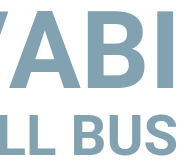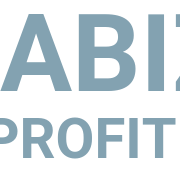Fundraising and Timing Issues for Newly Formed Nonprofit Organizations
Startup nonprofits often face a tough fundraising challenge during their first year or two of existence. The organization desperately wants to begin operations in pursuit of its charitable mission before they receive formal approval of their tax-exempt status but they have legitimate questions and concerns about funding until they receive that all-important IRS determination letter recognizing the organization’s 501(c)(3) exempt status. Here are a few thoughts to consider when navigating that dilemma.
Effective Date of Exemption
The exemption application (Form 1023 or 1023-EZ) can be submitted any time after the charity is formed and typically takes several months to process (a review period between 6-9 months is not unusual). So long as the exemption application is submitted within 27 months of the charity’s date of formation, the determination, once received, will be retroactive to the original date of incorporation. Therefore, so long as the application is successful, donors who contribute during the start-up period will be able to deduct their donations. In theory, these early donors take a risk that the founders either do not follow through with the application or that the IRS denies tax-exempt status (very rare in my experience, but it is possible).
Soliciting Funds While Exempt Status is Pending
Even though charities with pending applications can technically operate and accept donations, it is important to note that all donor solicitations must be truthful and cannot misrepresent the charity’s tax status. Therefore, startup nonprofits should be transparent about the pending status of the charity’s Form 1023 filing. For example, charities with pending applications can state: “XYZ Foundation is a Virginia nonstock corporation in the process of applying for IRS recognition of its 501(c)(3) exempt status.” Most donors may be willing to accept this small risk that their donation may not be deductible, but institutional grant-makers and major donors likely will not.
Charitable Solicitation Registration
Newly formed charities often make the mistake of soliciting prior to registering with the states where they are targeting donors. Most states, including the Commonwealth of Virginia, require formal registration (or an available exemption from registration) prior to soliciting charitable donations in their state. Virginia will accept registrations from charities with pending applications (other states require a favorable determination letter). Newly formed charities should not take this obligation lightly.
Substantiating Donations
Newly formed charities with pending applications must still follow IRS substantiation and acknowledgment rules for contributions they receive. The IRS requires charities to provide a written acknowledgment of all donations over $250. The written acknowledgment must provide the charity’s name, the amount and description of the donation, and whether if goods or services were provided in exchange for the donation. When goods or services are provided in exchange for a donation (such as with a fundraising dinner or similar event), the nonprofit must generally provide a written disclosure statement when the donation is in excess of $75. The disclosure statement must state that the donor’s donation is only deductible to the extent that it exceeds the goods or services provided in return, and it must give an estimate of the value of the goods or services provided to the donor.
Fiscal Sponsorship
Charities that wish to engage in a major fundraising campaign or solicit grants during their start-up period may decide to seek out a fiscal sponsor. A fiscal sponsor is an existing charitable organization that becomes a sponsor of a newly formed nonprofit or a specific project or activity of that young organization, collecting funds on its behalf, and making distributions to further it. Solicitations are made in the name of the fiscal sponsor and therefore permit the sponsored project to rely on the fiscal sponsor’s 501(c)(3) status, solicitation registrations, etc.
Perkins Law is pleased to offer a flat fee annual service package to Virginia nonprofit organizations that covers a variety of compliance, governance, transactional, and corporate maintenance issues. Contact us if we can help your organization!







Leave a Reply
Want to join the discussion?Feel free to contribute!